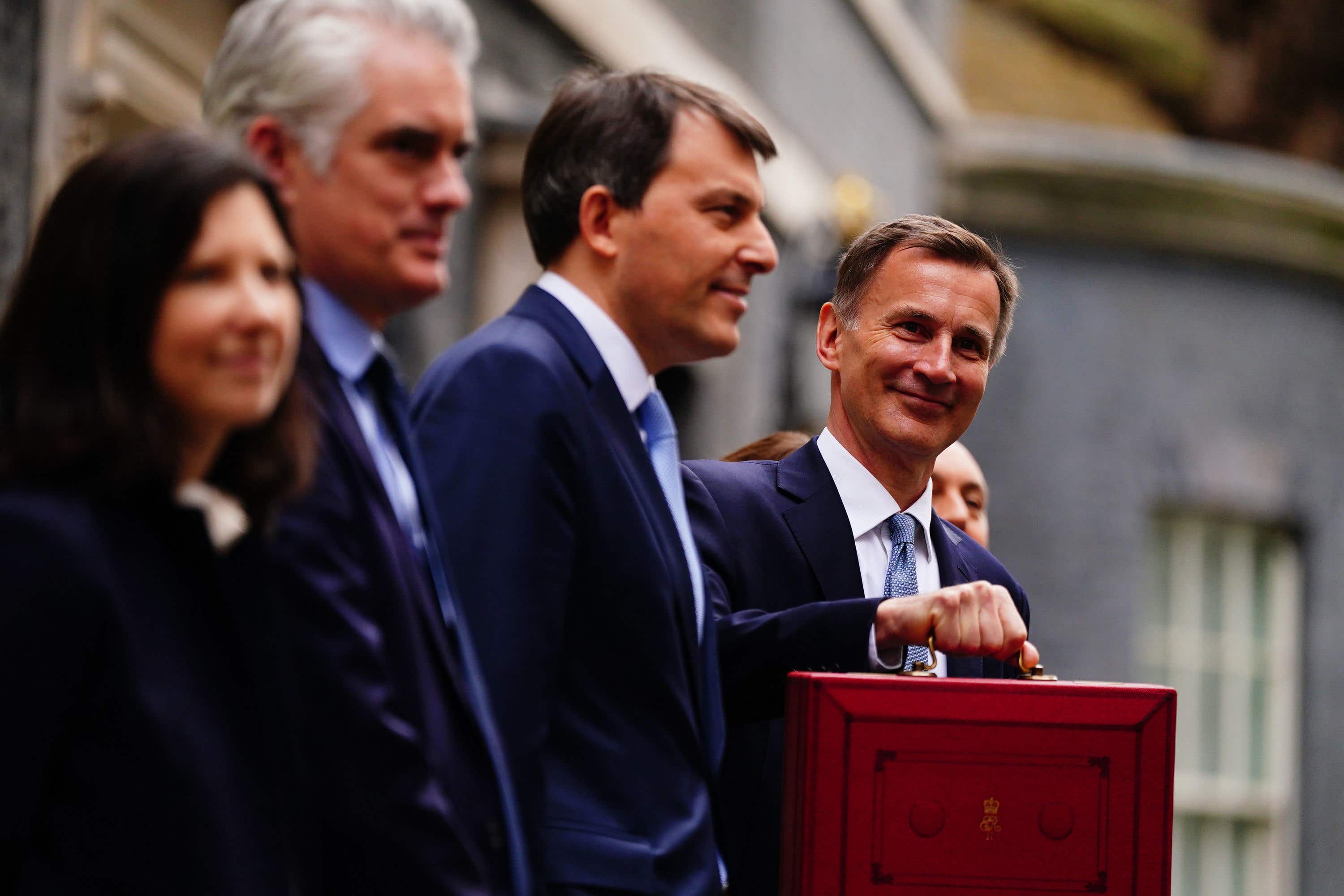Freezing fuel duty is a ‘political choice’ by Hunt, says IFS
The Institute for Fiscal Studies said the £6 billion could have funded an inflation-matching pay offer to public sector workers.

Your support helps us to tell the story
From reproductive rights to climate change to Big Tech, The Independent is on the ground when the story is developing. Whether it's investigating the financials of Elon Musk's pro-Trump PAC or producing our latest documentary, 'The A Word', which shines a light on the American women fighting for reproductive rights, we know how important it is to parse out the facts from the messaging.
At such a critical moment in US history, we need reporters on the ground. Your donation allows us to keep sending journalists to speak to both sides of the story.
The Independent is trusted by Americans across the entire political spectrum. And unlike many other quality news outlets, we choose not to lock Americans out of our reporting and analysis with paywalls. We believe quality journalism should be available to everyone, paid for by those who can afford it.
Your support makes all the difference.Jeremy Hunt’s decision to freeze fuel duty rather than funding a cost-of-living pay rise for nurses and other public sector workers is a “political choice”, the Institute for Fiscal Studies (IFS) has said.
In his initial Budget analysis, IFS director Paul Johnson said the £6 billion the Chancellor committed to holding fuel duty for a 12th successive year could have paid for an inflation-matching offer for hundreds of thousands of striking workers.
“That’s a political choice. Money for motorists, but not for nurses, doctors and teachers,” he said.
While Mr Johnson broadly welcomed the measures to boost employment, he warned that the impact on the numbers in work would be limited.
“Overall these look like a sensible set of changes which could have the sort of marginal, but positive, impact which is perhaps as much as we can expect from measures in a single Budget,” he said.
Mr Johnson said the pension tax changes were designed to encourage a relatively small number of better-off workers to stay in the workforce a bit longer and were “unlikely to have a big effect on overall employment”.
Meanwhile, the “likely doubling” of spending on childcare would potentially help “tens, but not hundreds, of thousands” of parents back into the labour market provided it was properly funded, he said.
Nevertheless, Mr Johnson said that it appeared close to ending a “25-year long journey” in which a new arm of the welfare state had effectively been created.
Overall, he said households still faced an “enormously difficult” period ahead with a series of big personal tax rises due to kick in next month.
The freezing of income tax thresholds, announced by Mr Hunt in the autumn statement in November, will mean basic rate taxpayers will pay an extra £500 in 2023-24, while for higher rate taxpayers it will be an additional £1,000.
“These tax rises may be necessary from a fiscal point of view, but they are an important part of the reason why household incomes are still expected to fall more over the current two-year period than at any point in living memory,” Mr Johnson said.
“The Government remains on track to meet its relatively loose fiscal targets by only the barest of margins, despite a historically high tax burden and some extremely tight post-election numbers for spending on public services.
“Debt interest spending is forecast to remain well above what was forecast a year ago. And we are still in the midst of an enormously difficult period for households. We’re by no means out of the woods yet.”
The Resolution Foundation (RF) think tank said changes to pension taxes represented a “significant giveaway” for higher earners which could prove counterproductive.
“A tax giveaway this big may actually see some workers choosing to retire early, or using their now uncapped pensions saving to avoid inheritance tax,” it said.
RF chief executive Torsten Bell said: “Tax changes to discourage early retirement – an issue that looks to have largely disappeared after the mid-pandemic surge – are hugely regressive and wasteful.
“It’s a big victory for NHS consultants but poor value for money for Britain.”